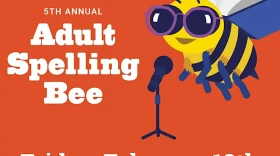From prisons to schools, to hospitals — places that care for a lot of people have had to change a lot of their operations in order to combat the spread of COVID-19.
Lake Effect contributor Bruce Campbell is a head and cancer surgeon at Froedtert Hospital and the Medical College of Wisconsin, and he shares his essay “Waiting for Coronavirus:”
My patient needs to be admitted to the hospital now. He has been recovering steadily from the throat cancer surgery I performed a month ago, but then he started intermittently bleeding. The bleeding continued – and worsened – over the past couple of days. He drives in from out-of-town and shows me photos of what he has coughed up. It’s bright red. Oh no, I think. That looks arterial.
“There is the real possibility that this might suddenly become dangerous,” I tell him. “We need to admit you to the hospital today. Right now. We have to stop the bleeding before it gets worse. I don’t want you to drive home.”
“But, Doc,” he replies, “what about the virus? I don’t want to be in a place where there might be coronavirus! I had cancer, I’m sure my immune system is shot. Isn’t there another way?”
He and I have both been watching the news. Only a few cases of coronovirus have been reported in Wisconsin thus far, but pandemics can overwhelm entire countries in a matter of days. Experts warn that we are on the front edge of a massive crisis.
READ: Narrative Medicine In The Time Of COVID-19
I had been reviewing my upcoming schedules with the office staff just before he came. We cancelled all of my elective surgery and moved all of my routine clinic visits into the fall. Everyone is preparing for the worst. He is right to be anxious.
“I hear your concern about the virus,” I say, “but we’ll do everything possible to protect you while you’re here. I’ll get you home as soon as possible.”
I know he needs the bleeding controlled but I can never know with absolute certainty if the benefits of admitting him to the hospital outweigh the possible risk of an infection while he's here. After more conversation, he relents and is soon on his way to a room. I type up my note and head back to my office.
As I walk down the quiet, deserted hallway, I shudder, recognizing that same, unsettled churning in my gut I had during the early days of the HIV/AIDS epidemic. Back then, there was no reliable HIV testing, there was only a rudimentary understanding of disease transmission, and no effective treatment. AIDS cases were increasing rapidly, and people died. There was no end in sight. As a young trainee, I wore a protective gown and a mask whenever I evaluated or tended to one of the shivering, emaciated AIDS victims. We read reports of health care workers at other hospitals who contracted and died of AIDS after puncture wounds.
One day in 1986, I plunged a needle deep into my thumb while operating on an HIV-positive patient. As the blood collected under my glove, I was terrified that I would be dead in a few months. I had a blood test to check my T-cell ratios. The doctor told me, “It was a suture needle and not a hollow needle, so your risk isn’t as high, but come back in a month and we’ll see if your counts have dropped.” For four weeks, I feared I would leave behind my young family just as my career was supposed to be getting started. I was fortunate. But the memory that sticks with me from those dark days is the dread uncertainty. It is indelible.
My patient undergoes successful treatment for the broken blood vessel. He does very well, has no more bleeding, and is soon ready for discharge. No fever, no complications, nothing bad happened. “Thanks, Doc,” he says. “Really glad to be going home.”
We bump elbows, he laughs. It’s the new normal.
“Keep me posted,” I say. I assume he will be fine now. But, of course, I realize I really don't know that with absolute certainty.
Scientists much smarter than I will eventually understand the COVID-19 Coronavirus, just as smart people eventually discerned the properties and treatments for the plague, cholera, influenza, polio, HIV, SARS, and Ebola after they first appeared. Each pandemic left its mark. I am certain that the caregivers who stood near each victim also experienced gnawing uncertainty and wondered at some point, what would happen to this patient and what possibly might happen to me?
Here we go again. All we can do is be present, follow the guidelines, and hope that we do the right thing for this patient in this place at this moment. Because the storm is coming. And it might change everything once again.
Lake Effect essayist Bruce Campbell is a head and cancer surgeon at Froedtert Hospital and the Medical College of Wisconsin. Many of his essays appear on his blog, Reflections in a Head Mirror. Campbell joined WUWM’s Advisory Board in 2013.





